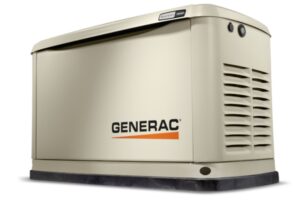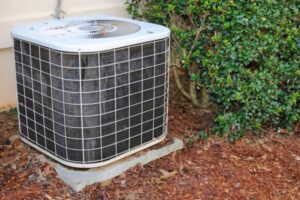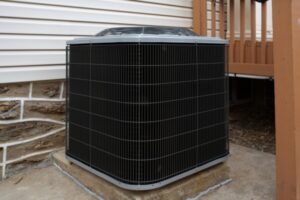9 Reasons To Choose Propane Over Electricity In Your Home

Contents
- 1 Is Propane Environmentally Friendly?
- 2 Challenges with the Push Towards Electrification
- 3 9 Benefits of Choosing Propane Vs Electricity for Your Household
- 3.1 1. Propane: A Wallet-Friendly Choice
- 3.2 2. Propane Has Many Uses
- 3.3 3. Propane Is A Reliable Choice
- 3.4 4. Propane Offers Simple and Long-lasting Storage
- 3.5 5. Propane: Accessible Where You Are
- 3.6 6. Propane: Speed and Efficiency Combined
- 3.7 7. Propane Is A Surprisingly Eco-Friendly Option
- 3.8 8. Propane Stands the Test of Time
- 3.9 9. Propane: The Epitome of Efficiency
- 4 Call Columbus Energies For Superior Propane Delivery Services
Understanding the undeniable urgency to adopt clean energy for the environment’s well-being is pivotal. Addressing the climate crisis to secure a sustainable future for coming generations is a collective responsibility. The buzzword ‘electrification’ has recently gained traction in clean energy conversations. But, diving deeper, it’s evident that electrification may not be the silver bullet solution, given its hefty conversion costs, which might be feasible only for the affluent. Propane is a potent alternative in the realm of clean energy. In the following article, we delve into the advantages of propane vs electricity in more depth.
Is Propane Environmentally Friendly?

Propane is a notably eco-friendly fossil fuel, burning cleaner than others and offering lower carbon emissions than electricity. For instance, homes using propane for heating can emit up to 30% less carbon than all-electric ones, with potential reductions of 50% in overall carbon emissions when used for multiple purposes.
Additionally, the industry is advancing with renewable propane, derived from sustainable sources like agricultural waste and used cooking oil, often produced as a biodiesel byproduct. This points to cost-effective, renewable options like biomass that are as clean as propane, beneficial for those facing financial challenges in switching to electricity.
The Edge of Propane Appliances
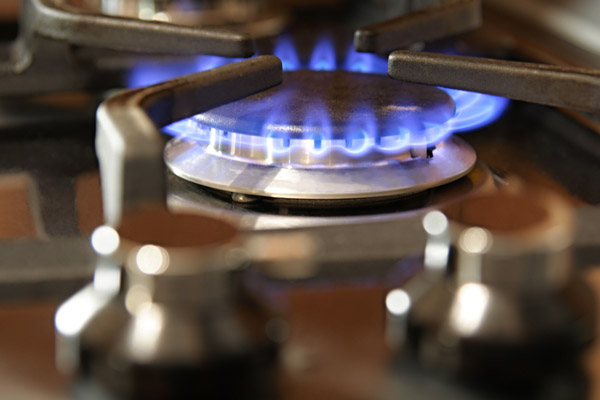
Propane appliances are more efficient than electric ones, benefiting the environment with a smaller carbon footprint and offering time and cost savings. For example, propane water heaters heat up water twice as fast as electric ones, and clothes in propane dryers dry 25% faster. Propane space heaters also outperform electric heaters in efficiency. Overall, these efficiencies contribute to a greener planet and can lead to significant savings on utility bills.
Propane: A Safe Choice for the Environment
Opting for propane brings along an added layer of assurance. Its non-toxic nature ensures that the environment remains unharmed even in the unlikely situation of a leak. Whether it’s the air we breathe, the soil that nurtures, the water that sustains, or the plants and aquatic life – propane poses no threat.
More on Propane’s Green Credentials
Propane is highly regarded for its eco-friendliness, with several key points highlighting this:
- It is the only alternative fuel listed in both the 1990 Clean Air Act and the 1992 National Energy Policy Act.
- Propane is the simplest and lightest hydrocarbon on Earth, producing almost no greenhouse gases and ranking as one of the cleanest fossil fuels.
- About 90% of propane used in the U.S. is sourced domestically or from Canada, minimizing its carbon footprint from transportation compared to fuels from farther away. This local sourcing also stabilizes its price and availability, making it less affected by international market fluctuations.
Challenges with the Push Towards Electrification
Despite its popular green reputation, electricity comes with its own challenges. A significant portion of America’s electricity is sourced from coal-burning power plants. This method places electricity as the country’s second-highest emitter of greenhouse gases, trailing only behind the transportation sector.
Moreover, if one were to account for the entire energy journey – from extraction and processing to transportation – propane emerges with a commendable efficiency of 87%. In contrast, electricity lags at just 32% efficiency. This is certainly something to take into consideration when discussing propane vs electricity.
The Implications of Total Electrification

What might we face if we transition everything to electricity? Here are some potential challenges:
- Energy Source Issues: The bill advocates for replacing oil and propane heaters with electric heat pumps. But here’s a hiccup: more than half of the electricity in MA and Rhode Island is derived from natural gas combustion, primarily methane. Methane, shockingly, is over 80 times more potent than carbon dioxide at heat retention. Consequently, the carbon footprint in these states might not see much reduction and could even grow, especially when accounting for the 8 to 15% electricity wastage from plants to homes.
- Strained Energy Grid: Our electricity grid already walks a tightrope, teetering on the edge during hot spells with brownouts. How then could it withstand the relentless demands of a freezing winter?
- Heat Pump Efficiency in Cold: While electric heat pumps are gaining ground as secondary heat sources, their performance nosedives in the biting cold. This is a hurdle that oil and propane systems effortlessly clear. If you rely solely on electric heat pumps, brace for shivering evenings.
- Installation Costs: Data from the region underscores a steep cost curve for heat pump installations, averaging over $20,000. That’s nearly twice what you’d shell out for today’s propane or oil heaters.
9 Benefits of Choosing Propane Vs Electricity for Your Household
While electricity might dominate the headlines, propane offers compelling reasons for its adoption in homes. Here are nine standout benefits of favoring propane vs electricity:
1. Propane: A Wallet-Friendly Choice
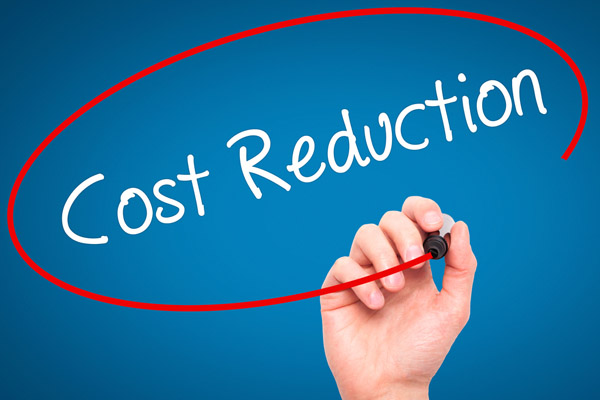
Appliances powered by propane excel in performance and are gentle on your pocket. As per the US Department of Energy, opting for a propane water heater can trim your annual expenses by $174 compared to an electric counterpart. Running propane water heaters can be 30%-50% cheaper than their electric versions.
2. Propane Has Many Uses
Beyond just heating your home, propane serves multiple functions. It efficiently fuels diverse household appliances, including ovens, clothes dryers, and water heaters. Outside, it’s the perfect companion for your grills, pool, and patio heaters. And for that added touch of ambiance? Propane fire pits and lighting can transform your outdoor spaces into cozy retreats.
3. Propane Is A Reliable Choice
Your propane supply remains steadfast amid extreme weather or unexpected events that might disrupt the electric grid.
4. Propane Offers Simple and Long-lasting Storage
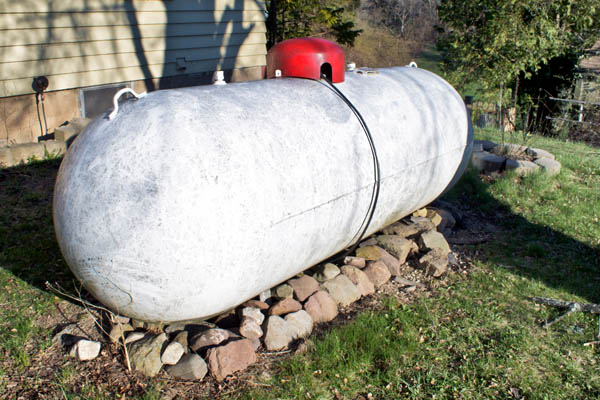
Propane stands the test of time without degradation, making it a hassle-free storage option. Plus, with minimal upkeep, propane tanks last impressively long – up to 40 years, ensuring you get value for your investment.
5. Propane: Accessible Where You Are
In certain locales, tapping into the electric grid can dent your wallet. However, you don’t have to worry as the team at Columbus Energies guarantees dependable propane delivery right to your doorstep. We’re committed to ensuring you’re never short on propane, whatever the weather or market fluctuations.
6. Propane: Speed and Efficiency Combined
Choose propane and watch tasks get accomplished quicker. A propane water heater outpaces its electric counterpart, producing double the hot water in the same duration. For your laundry, propane dryers wrap up the drying process 25% swifter than electric ones and with fewer static issues. Similarly, when it comes to space heating, propane emerges as a clear winner over electric heaters in efficiency.
7. Propane Is A Surprisingly Eco-Friendly Option
Propane water heaters emit approximately 50% fewer carbon emissions compared to electric water heaters with storage tanks. Given that a significant portion of our electricity is sourced from coal-fired plants, electricity ranks as America’s second biggest greenhouse gas contributor, just after transportation.
8. Propane Stands the Test of Time
A propane gas furnace boasts an impressive average lifespan of 20 years. In contrast, electric heat pumps typically last about 14 years.
9. Propane: The Epitome of Efficiency
To match the energy produced by burning just one gallon of propane, you’d need 27 kilowatt hours of electricity.
There’s a myriad of reasons to opt for propane in your household. Rest assured, Columbus Energies stands ready to cater to all your propane requirements.
Call Columbus Energies For Superior Propane Delivery Services

Contact Columbus Energies when you require superior propane delivery service in {Service Area}. We provide top- quality fuel deliveries that are swift, friendly, and affordable.
Rely on us to provide you with unbeatable service at all times. Call today to learn about our company’s various delivery plans and financing options.
We also offer a full line of HVAC services to improve your home’s comfort, energy efficiency, and indoor air quality. These include heating and cooling maintenance, replacements, repairs, and more. Call Columbus Energies today!
Contact us now by calling (508) 674-1492 to speak to one of our home comfort specialists!
Related Articles:


